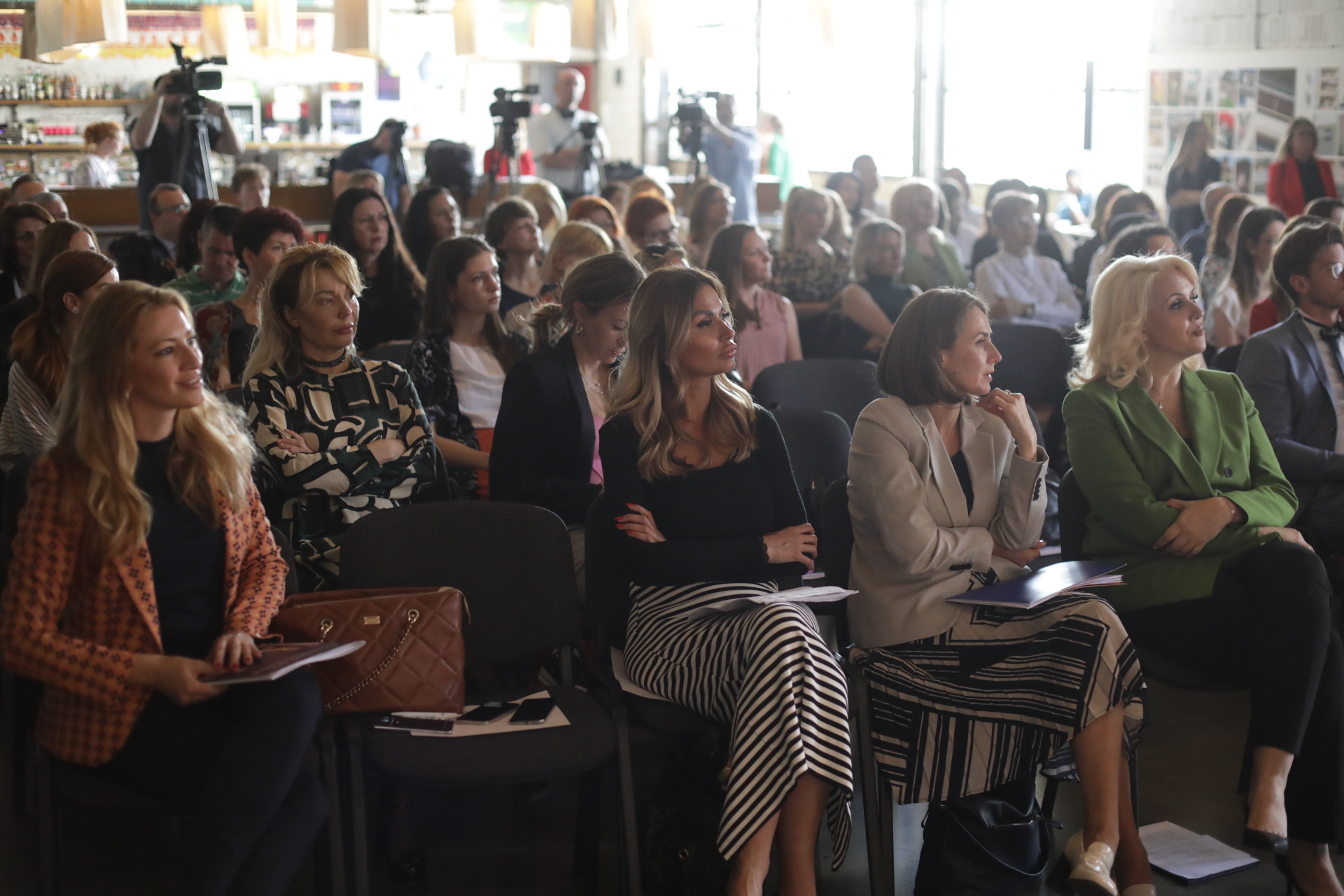Women make up 31 percent of all entrepreneurs in Serbia, new research finds
Date:

Belgrade, 5 June 2023, UN Women has launched a new report entitled “Study on Women’s Entrepreneurship in Serbia”, conducted by the independent Serbian think-tank SeConS, with support from the Ministry of Economy and Regional Development of the Republic of Serbia. This comprehensive study represents a decade-long reevaluation of the state of women’s entrepreneurship in Serbia, following an initial baseline study carried out by UN Women and SeConS in 2012, with the ministry’s support. The primary goal of this study was to identify the changes, achievements, challenges, and potential opportunities for women's entrepreneurship, informing future policy considerations. The report, based on extensive research spanning a decade, reveals several critical insights. According to the new report:
- Women entrepreneurs comprise only 31.2 per cent of all entrepreneurs, with 70 per cent categorized as “new” entrepreneurs;
- The average age of women entrepreneurs has increased to 46, marking a 5-year difference from a decade ago;
- Women entrepreneurs have become increasingly educated, with 50.6 per cent holding a college or faculty degree, compared to 29.2 per cent in 2011.
These findings indicate a shift towards entrepreneurship driven by opportunity rather than necessity. The report also hints at a significant shift over the past decade in the increase in the number of women who received information about starting independent businesses through regular education. This shift reflects improvements in school and higher education programs that now offer more information about entrepreneurship. The percentage of women entrepreneurs who received such information during their education has risen from 15 per cent a decade ago to 31.9 per cent.
Meanwhile, the report also highlights key challenges and opportunities faced by women entrepreneurs when starting an independent business. Among the challenges are:
- Navigating regulations on financial obligations;
- Securing initial financial resources;
- Finding clients;
- Building an adequate workforce;
- Understanding labour and employment regulations;
- Complying with industry standards;
- Maintaining sanitary conditions;
- Identifying suitable premises and suppliers, as well as
- The inability to share fears and risks.
Moreover, although gender segregation in terms of the sectoral orientation still persists, comparative data for 2011 and 2021 indicate that there have been noticeable changes in the sectoral structure of women’s businesses. The share of women entrepreneurs in the trade sector has significantly decreased while the share of those in the catering sector has decreased to some extent. Meanwhile, the share of those operating in the IT and communications sector, real estate and especially professional, scientific, technical and innovative activities has increased with the share of those in the administrative and social services has nearly doubled, primarily due to the increased share of business ventures in the field of education and healthcare.
The report identifies new challenges faced by women entrepreneurs in 2022 compared to 2011, including an unfavorable market position for small companies, market monopolies, pricing difficulties, labor availability with appropriate qualifications, and keeping up with technological standards. However, it is now easier to collect claims, and there is sufficient demand for products and services, with government programs for development assistance and bank loans more readily accessible.
Despite these challenges, including the COVID-19 pandemic, women entrepreneurs exhibited significant resilience, which was positively supported by government measures. Over a fifth of women entrepreneurs reported that the pandemic had no impact on their businesses.
A notable change over the past decade has been the increased sharing of responsibilities and household tasks between women entrepreneurs and their partners. Today’s women entrepreneurs report that they strike a better balance between work and family life. This can be attributed, in part, to shifts in family structures, as a smaller proportion of today's women entrepreneurs are married with underage children. However, even with this change, they undoubtedly carry the largest share of household responsibilities, which, along with running a business, creates increased workloads.
During the launch event, the Minister for Family Care and Demography and Deputy President of the Coordination Body for Gender Equality, Darija Kisic, emphasized that women are entrepreneurs in their own homes – they combine their knowledge, values, and very often their imagination, to achieve the almost impossible to make everything work.
"Now it is important that we improve and address the position of women in the reproductive period so they can be competitive and active on the labor market. Regarding work – life balance, we should encourage fathers, husbands, partners to support their wives, and to see the family as a team where everyone contributes”, she added.
Aleksandra Miletic, GEF Project Officer in UN Women Serbia Country Office says that the study showed that women have huge potential in entrepreneurship, which fuels economic development: “That is why female entrepreneurship in Serbia must be strengthened through projects and laws on equality, to encourage and motivate women to start their own businesses and use their full potential”.
The report marks the ten-year anniversary of the initial baseline study on women's entrepreneurship in Serbia, first published in 2012. The earlier research, supported by UN Women and initiated by the Ministry of Economy and Regional Development of the Republic of Serbia, contained policy recommendations aimed at fostering women's entrepreneurship and narrowing the gender gap in economic participation and employment. In 2021, the Ministry of Economy of the Republic of Serbia initiated this follow-up study to assess the state of women’s entrepreneurship a decade later. The research was carried out by SeConS, with support from UN Women under the “Support to Priority Actions for Gender Equality in Serbia” project, funded by the European Union. The study’s aim was to provide necessary data for the Ministry of Economy to formulate policies aimed at stimulating women’s entrepreneurship.